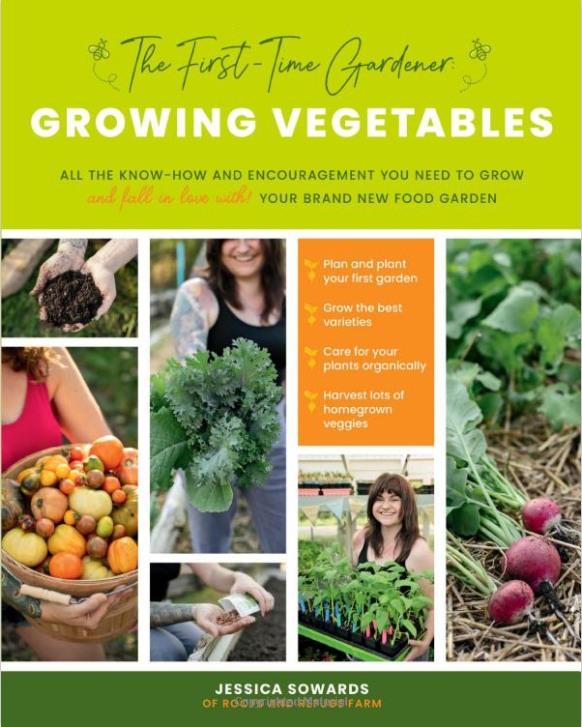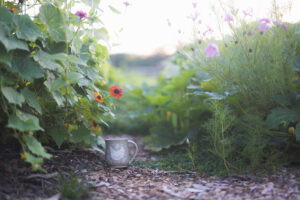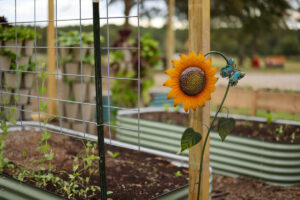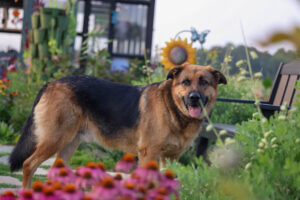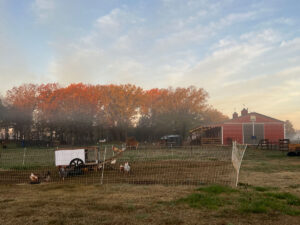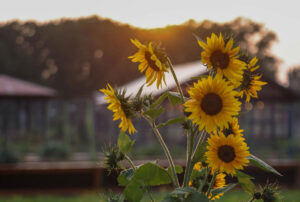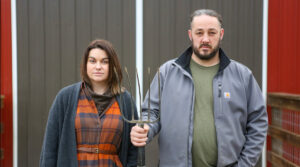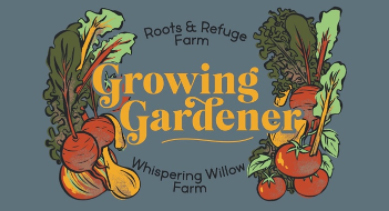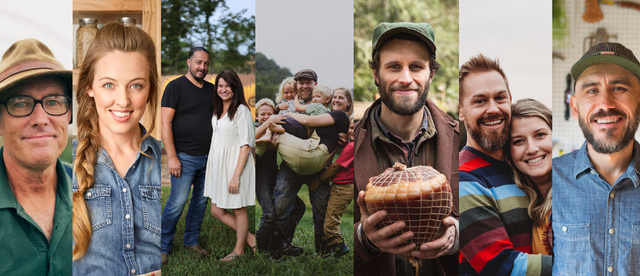Being prepared is important, but it isn't everything. Fear pushes you, but wisdom leads you. It's my hope that through this video and podcast you'll be encouraged to tap into the wisdom and let it lead you to get prepared.
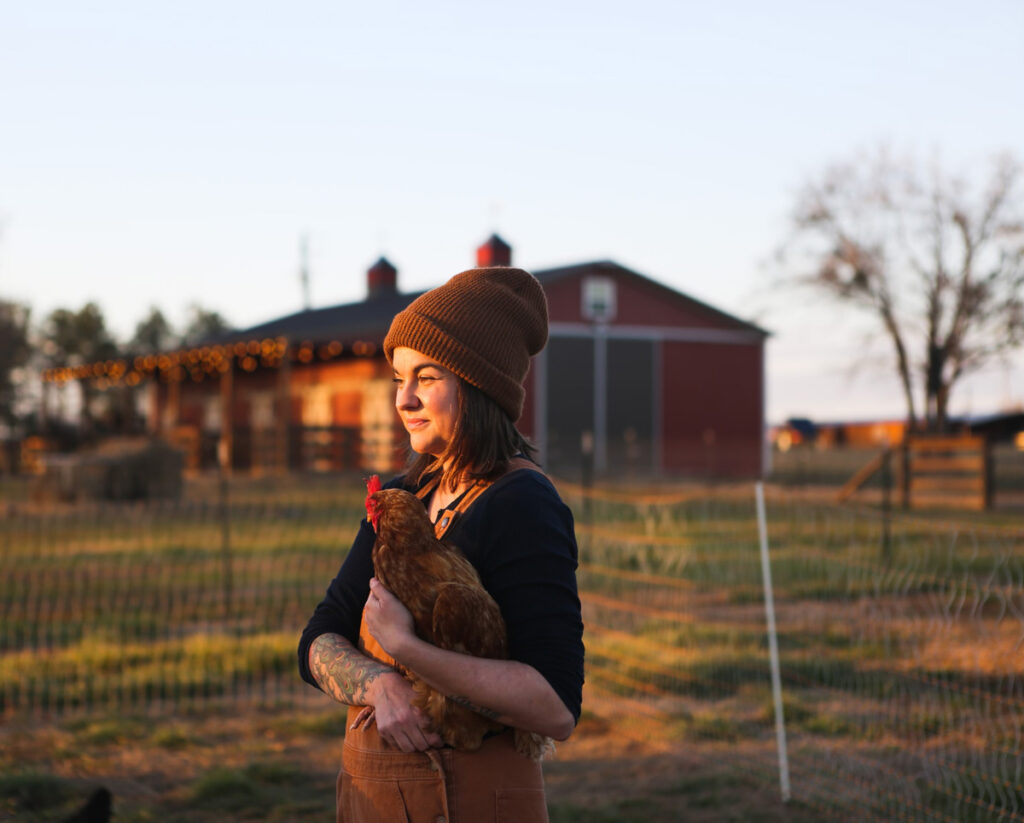
It's hard to know where to start when getting prepared, especially if the emergency situation you're preparing for hasn't happened yet.
Fear should never be the driving factor for what we're doing. Be sure to check out this post on the Urgency to Grow Food for more inspiration.
I think 2020 opened our eyes to what can quickly happen when things go sideways. So here's my list of ways to get prepared right where you are now, to turn your waiting room into a classroom.

Water
We all know that we can't go more than three days without water. So procuring a sustainable clean water supply is at the top of my list.
This includes a water source and a way to filter the water.
For us, we have multiple ponds on our land and a Berkey water filter. So I know if we don't have access to clean water, I can go scoop up a bucket of water from the pond and filter it.
There are ways to boil water so it's purified, so if you don't have access (or means to buy) a water filtration system, this is always an option. However, it will take much longer to boil and cool water for it to be ready to drink.
Water Storage
Along with having a water source, you'll want a way to store water. If you have livestock that will need access to water, you will want to consider how much you need on hand to keep your family in water for a week, a month, etc.
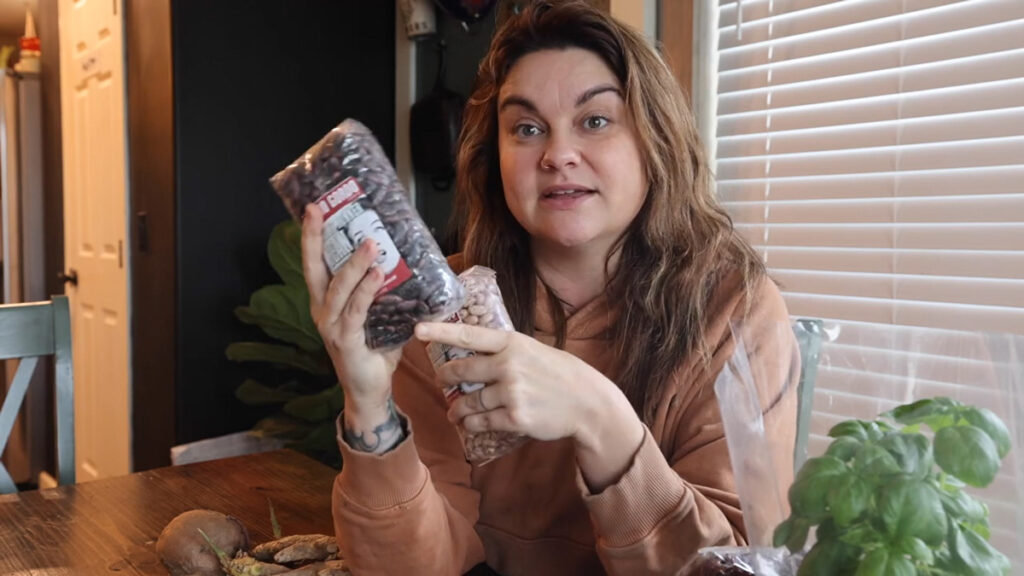
Dry Goods
A supply of dry goods on hand for easy meals is next on the list. Being prepared with a solid food supply is key, which means foods that aren't perishable. Storing these dry goods in mylar bags inside food-grade buckets is best. That will help keep pests and moisture from ruining your food.
How much food do you need? That depends. Check out this food storage calculator as a place to start (you can adjust the calculator to tell you how much food you need for two weeks, a month, a year, etc.). I think having 3-6 months of food on hand is important. But just start somewhere.
There are companies that are capitalizing on this whole “preparedness” movement, and they'll sell you a year's supply of food for an exorbitant amount of money. My recommendations are to start building up a supply of dry goods that also fit into your normal meal rotation.
For us, this looks like storing extra dry beans, rice, wheat berries (to grind into fresh flour since ground flour doesn't last as long) and some backup sourdough starter.
I've been perfecting my sourdough bread baking (it's not as simple as just following a recipe, as with other yeast bread). I wouldn't consider myself an expert enough to teach this. However, my friend Jill Winger (Whispering Willow Farms) has a great sourdough mini-course you can check out.
Keep in mind that if you stock your shelves with an emergency food supply and it's getting close to its expiration date, you can always donate your goods to a food pantry and restock the food again. We're not about letting this food go to waste.
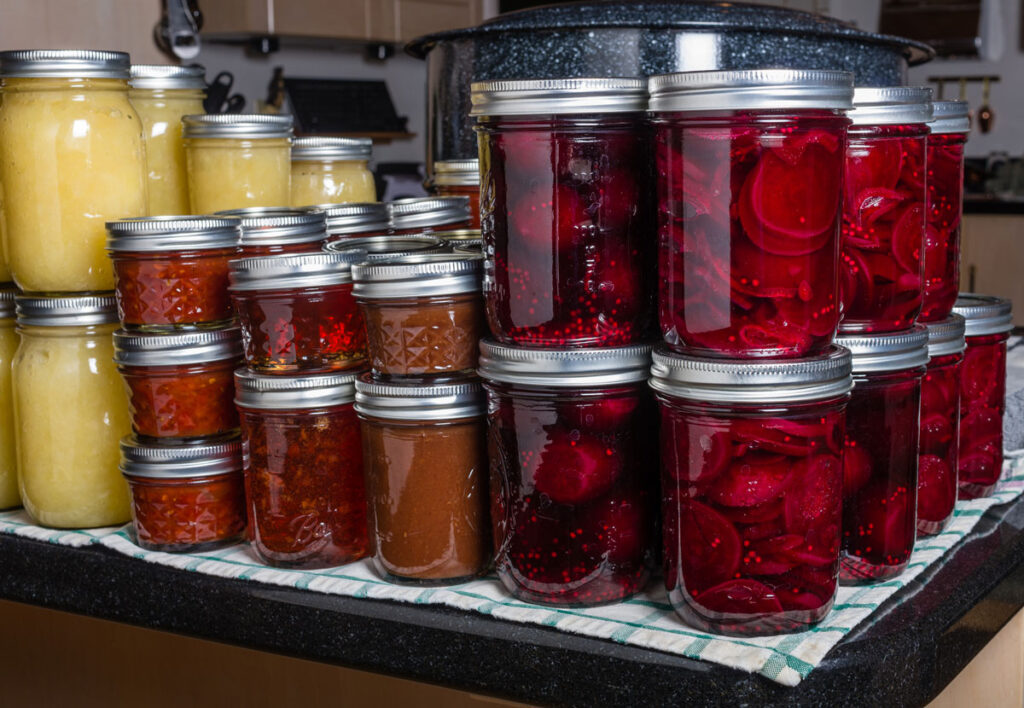
Learn to Can
When you learn how to can you can start stocking your shelves with your own canned goods. Things like canned meat, home-canned chicken broth,
Check out my introduction to water bath canning or this Canning 101 post on the various methods of canning. Then, learn to make homemade bone broth and pressure can it. You'll be amazed how much better the flavor is than store-bought, and the fact that you can put canned broth on the shelf for mere pennies will make you want to stop buying it!
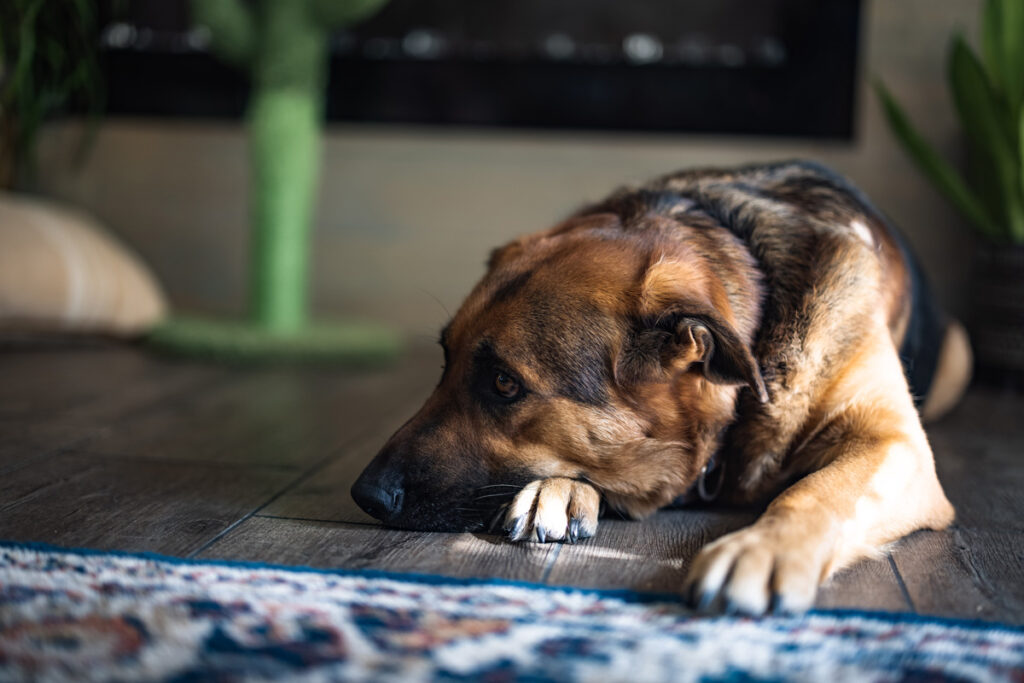
Don't Forget Your Pets & Livestock
If you have dogs, cats, or other livestock, you have to take into consideration their food supply as well. There are many feed stores that will sell pet food in bulk, or they usually have annual sales that will make it a better price to stock up.
It's also more affordable to buy grain and hay in bulk, but you have to have the money upfront to be able to do this. So start tucking that money away each month, then you'll be able to save more overall and know your year's supply of food is covered for your animals.
It's important to consider what your plan would be for your livestock if feed and or grain became unavailable.
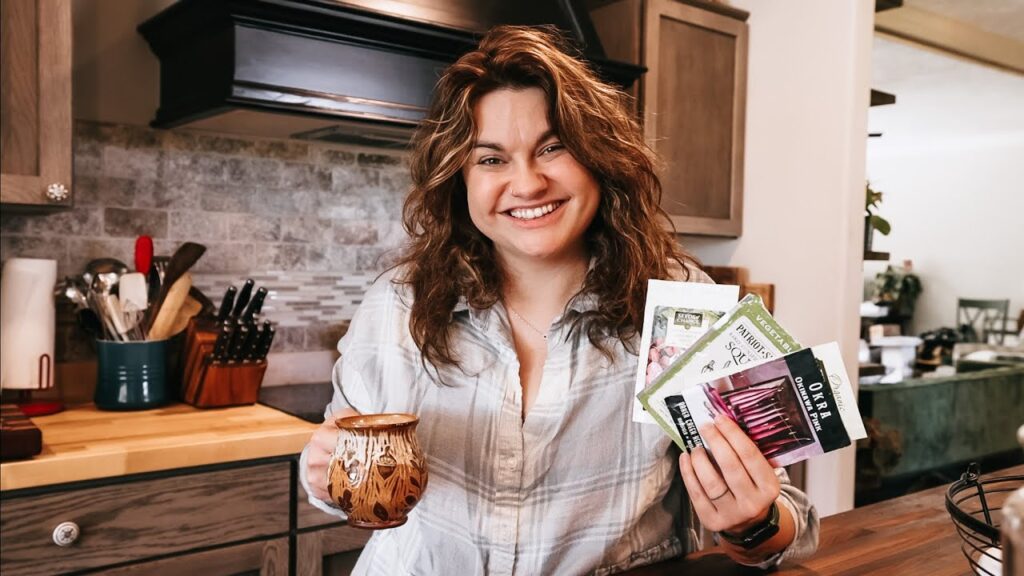
Seeds
Start building up a supply of garden seeds. Don't make the mistake that I did of tossing out seed packets that were packaged for previous years. This is something they have to put on the package, but seeds don't expire! They may have a decreased germination rate, but most of the time, garden seeds are good for many years.
In fact, Luke from MIGardener did an experiment where he planted 100-year-old seeds and some of them still germinated!
I do think open-pollinated seeds are important, but they don't have to be heirloom seeds, nor do they have to be expensive. Open-pollinated just means that you can save the seeds from that plant and grow a plant just like the parent plant. If you don't have access to open-pollinated seeds, still save the seeds and try to grow them the next year anyway.
Also, keep in mind that many seed companies will sell off their seed stock around the beginning of summer at discounted rates. Those seeds are still perfectly viable and a great way to build up your seed collection.
Start by stocking up on those seeds that will be a staple crop. Things that will feed more people per seed. For instance, a bean seed will grow multiple beans out of one seed. A cucumber will grow multiple cucumbers, and a squash seed will grow multiple, calorie-dense squashes. However, a carrot seed will only grow one carrot, and an onion will only grow one onion.
I'm not saying those are crops you shouldn't grow, but I'm saying start stocking the seeds that will produce as much food as possible first.
There are also so many foods you can buy from the grocery store and plant in your garden. You do not have to spend $300 on survival seeds. If a true emergency arises, you're never going to wish you had more expensive seeds, you'll just be glad for what you have.
Learn to Garden
If you learn the skills to garden, before you know it you'll be saving your own seed and will very quickly have a sustainable garden year over year.
But this isn't a skill I recommend everyone start with. Learn the basics of gardening first, I'm ten years in and still learning through my mistakes! Get my book, The First Time Gardener if you're looking for a place to start.
Poke around at the different posts I have here on the blog, go watch my old YouTube videos. There are so many free resources available.
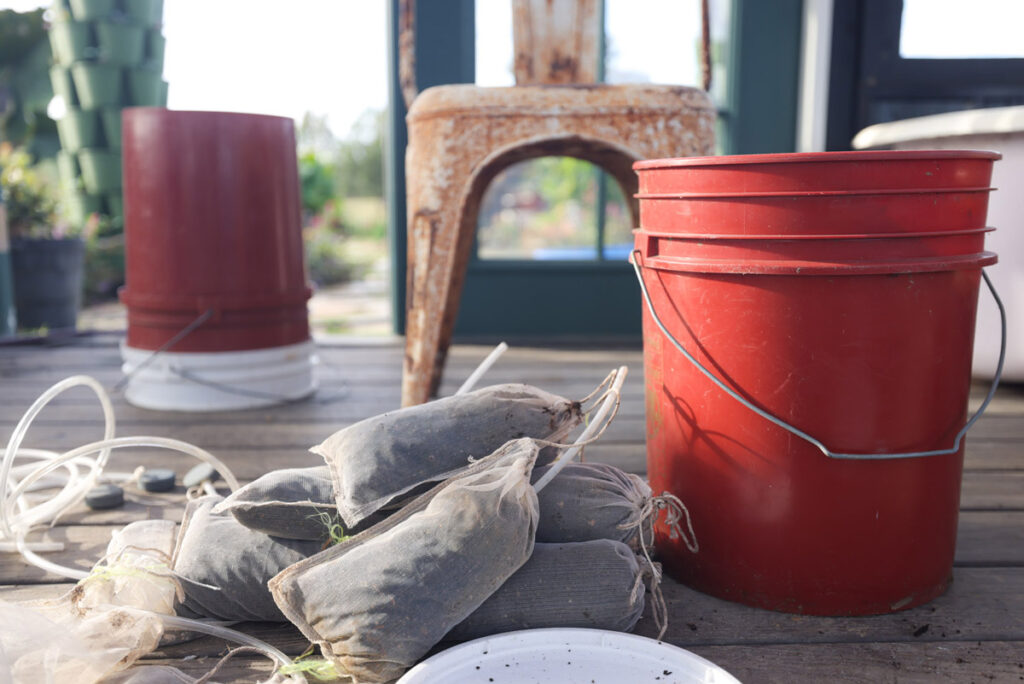
Build Healthy Soil
It's never too early to start learning about how to build up healthy soil. I always say, don't feed the plants, feed the soil. Healthy soil grows healthy plants.
Even in a very small space you can keep a worm farm and use the worm castings in your garden, or learn how to make compost tea with those castings. My friend, Natalie from Hey It's a Good Life, has a great course, The Gardener's Guide to Worm Farming.
If you have the space, learn how to build a compost pile to make enough compost for your entire garden.
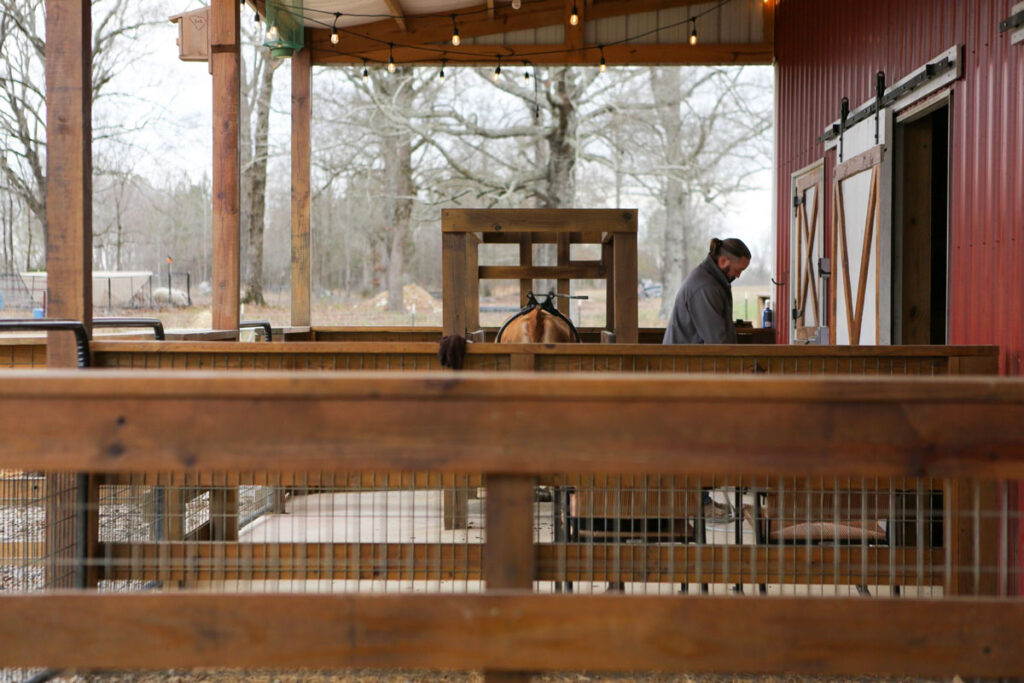
Backup Medical Supplies
If you have medical needs, such as prescriptions, try to have a backup supply on hand. I know this isn't always possible, but we have an asthmatic son and try to help support his needs holistically. However, we also keep a backup inhaler on hand for emergencies.
Keep first-aid supplies on hand. Know how to treat wounds and have the supplies necessary. Things like suture kits, bandages, triple antibiotic paste, etc. All these things may not seem necessary until you need them and don't have access to them. Even consider having a filling kit on hand in case something happens to your teeth and you can't get into a dentist.
Don't forget your livestock! Having a good supply of livestock first-aid needs is also important. You may not have access to a vet when needed.
Good Hygiene Supplies
Along with the medical supplies come good hygiene supplies. Keep enough toothpaste, soap, shampoo, hydrogen peroxide, alcohol, etc., on hand so you can keep good hygiene during an emergency situation.
Being able to keep things sanitary is important. Consider keeping feminine hygiene products that are washable and reusable on hand (and learn how to use them).

Clothing
For short-term emergency situations, I think most of us will be fine with our clothing supply. But what if clothing becomes unavailable long-term? This is one that I haven't quite figured out myself yet, but what I do right now is buy extra packs of socks or underwear when I see them on sale.
Most of our boys are stair-stepped, and we'll be able to pass down clothes for quite a while.
Having a sewing kit to do basic mending is a good idea.
Backup Power & Light
We have a few oil lamps on hand to use for light if the power goes out. But for us, electricity tends to be our weakest point at the moment.
Having a backup generator might be necessary, or alternative ways to heat your house if you rely on electric heat. If you have a wood-burning stove or furnace, consider whether you have enough fuel (wood) to get you through the winter.
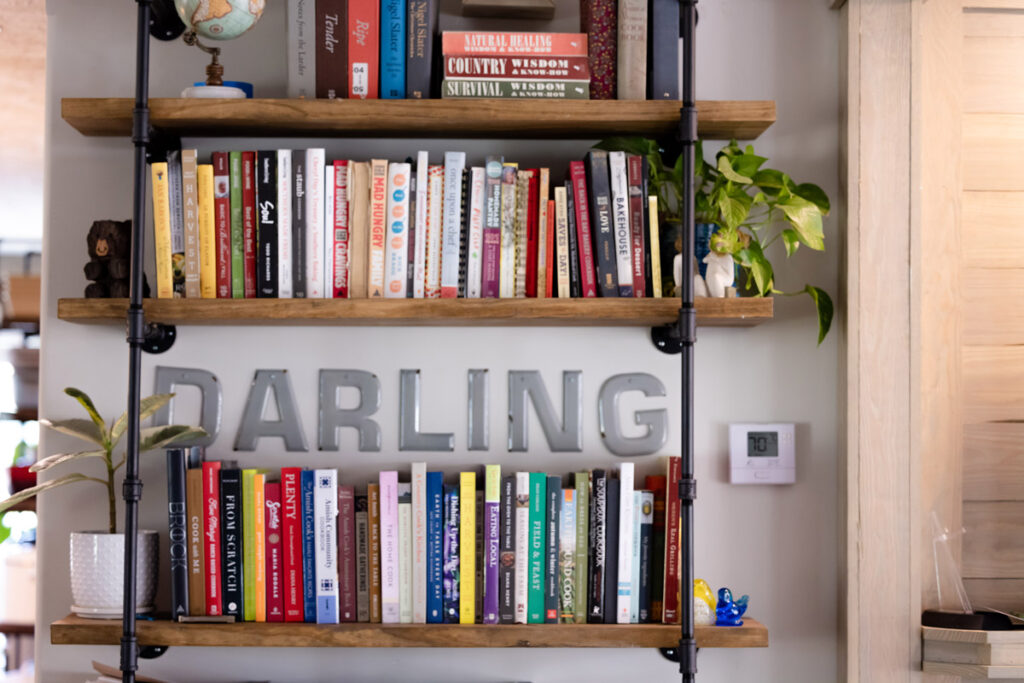
Education
Think about how you cook every day from home. Are you reliant on the internet for recipes? I'll admit I love to cook, and I still rely on my own blog to look up my recipes. Yes, I do have them printed out, but my phone is typically in my pocket and much easier to pull out to look something up.
Consider printing out your go-to recipes and compiling your own cookbook. Or, purchase a cookbook that you can use for recipes, and start practicing with those recipes now so you're familiar with them when you need them.
Community
If you are in a place where you don't have the means to do any preparing for yourself, then get yourself into a community of people who have the means to help you. There are so many people with different skills that we can all use to help one another.

More Posts You May Enjoy
- The Brand New Roots & Refuge Podcast
- Social Media and the Modern Homesteader
- Our Five-Year Vision
- Mistakes We Made
- Answering Your Questions – The Homestead Edition
- Changing the Small Things: An Intro to Permaculture
- Content Creation and Business
- The Importance of Community Sufficiency
- Answering Your Questions: The Gardening Edition
- What is a Hometeader?
- Answering Your Questions: Home Life & Relationships

